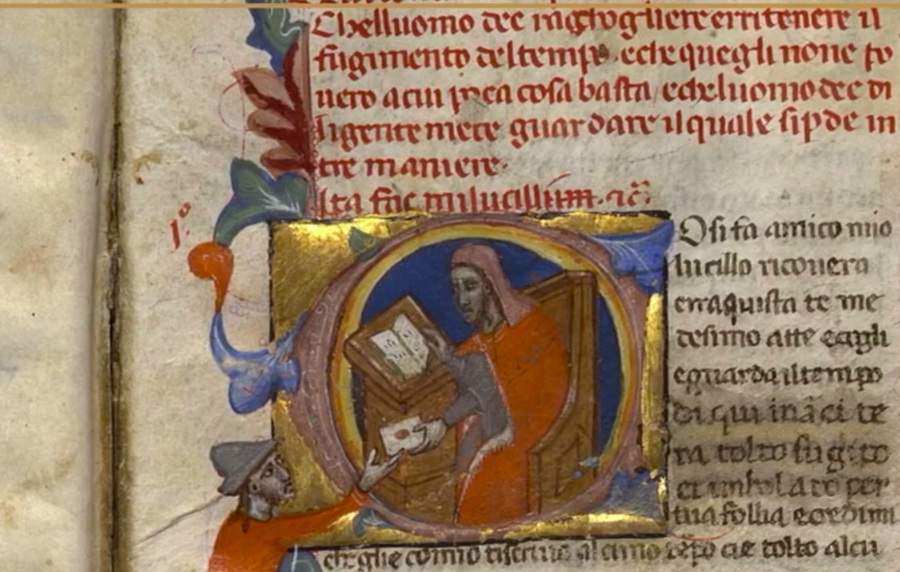Naples National Library, three important codices from Dante's time restored
Three important 14th-century codices in the National Library in Naples have been restored: these probably influenced Dante’s cultural formation: theEthics of Aristotle, the Letters to Lucilius, and Brunetto Latini’s Tresor. These texts are fundamental for understanding Dante’s sources; moreover, the manuscripts, which circulated in Dante’s time, are also of significant bibliographical interest.
The conservation work was carried out at the National Library of Naples, thanks to the resources made available by theAccademia Nazionale dei Lincei, which wanted to ensure the presence of the codices in the ongoing exhibition until January 16, 2022 at Palazzo Corsini in Rome, dedicated to “Dante’s Library.” The exhibition investigates the Supreme Poet’s cultural knowledge at the time when he was preparing to compose The Divine Comedy and presents for the first time all the works mentioned by Dante in his writings, thanks to the Accademia Nazionale dei Lincei and its collaboration with Italian libraries. The exhibition, curated by Roberto Antonelli, Ebe Antetomaso, Marco Guardo, and Lorenzo Mainini, hosts more than seventy codices, from major Italian and international collections: among them the three Neapolitan codices, which the public will be able to admire restored.
TheEthics of Aristotle is a fundamental work for understanding Dante’s philosophical and moral conception. The manuscript is to be regarded as a classic example of a scholarly codex, richly postilluminated by literary scholars and bearing the Latin translation, made directly from the Greek by Robert Gossatesta, bishop of Lincoln, between 1240 and 1249. The codex may have originally been owned by Fra Mariano da Firenze (1477-1523), a learned Franciscan friar; the convent referred to may have been Santa Maria degli Angeli in Florence.
Brunetto Latini’s Tresor is one of the very few copies in Italian libraries compiled according to the original text, in French. Brunetto Latini composed the work in France, during his exile from 1260 to 1267, in lingua d’oïl, with the title Li livres dou Tresor: it is a true medieval encyclopedia.
The Letters to Lucilius by Lucius Anneus Seneca is a rich and elegant Tuscan vulgarization of Seneca’s moral work, dated between 1320-1340, and is based on the first translation into a modern language from French Latin in the years 1308-1310 of Seneca’s letters to his disciple. The codex features a miniature attributed by recent studies to the workshop of Pacino di Bonaguida, an important Italian painter and miniaturist of the Giotto school, active in Florence from the first decade of the 14th century.
“I would like to highlight,” comments Salvatore Buonomo, director of the National Library of Naples, “the valuable conservative restoration of three of our membranous manuscripts carried out at our institute by restorer Chiara Argentino under the supervision of our officials and funded by the Accademia dei Lincei. Activating collaborations, as in this case with the Accademia Dei Lincei, developing new sharing tools and common paths, is supportive in safeguarding the social function of culture, strengthening the activity of libraries as instruments of knowledge and knowledge.”
Pictured are the letters to Lucilius.
 |
| Naples National Library, three important codices from Dante's time restored |
Warning: the translation into English of the original Italian article was created using automatic tools. We undertake to review all articles, but we do not guarantee the total absence of inaccuracies in the translation due to the program. You can find the original by clicking on the ITA button. If you find any mistake,please contact us.




























